NSYSU’s platform for international Sinology to hold series of interviews with top Sinologists
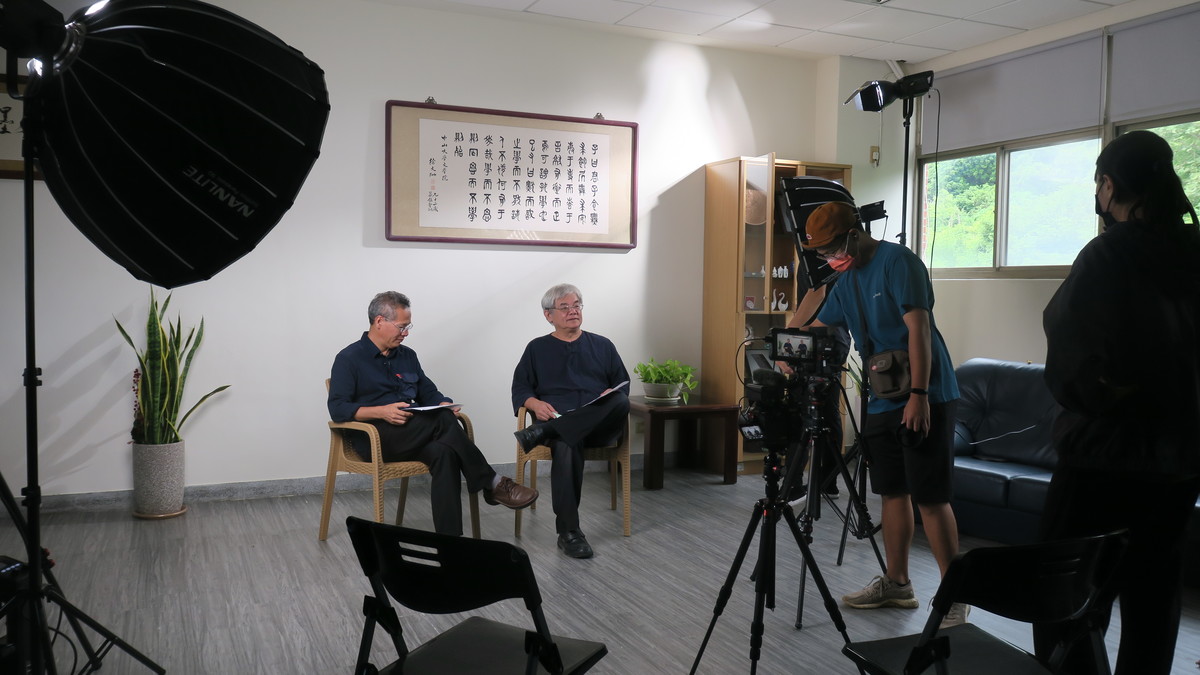
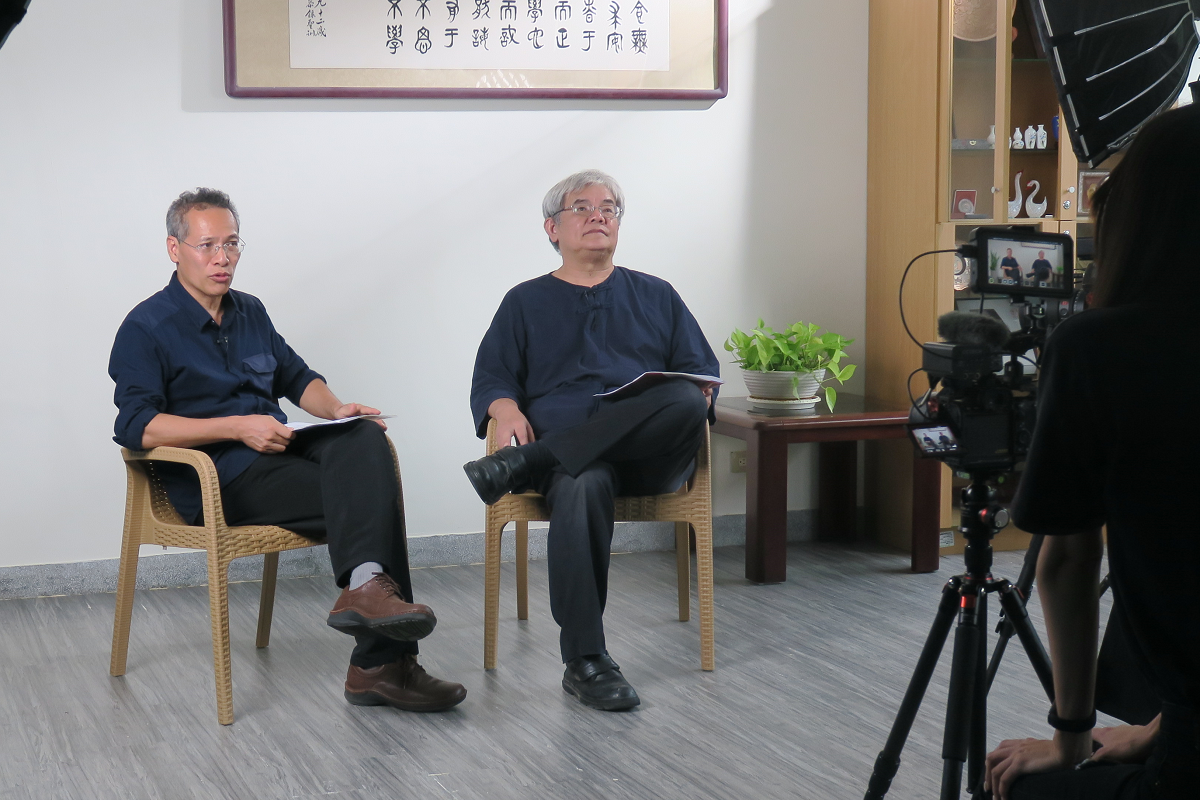
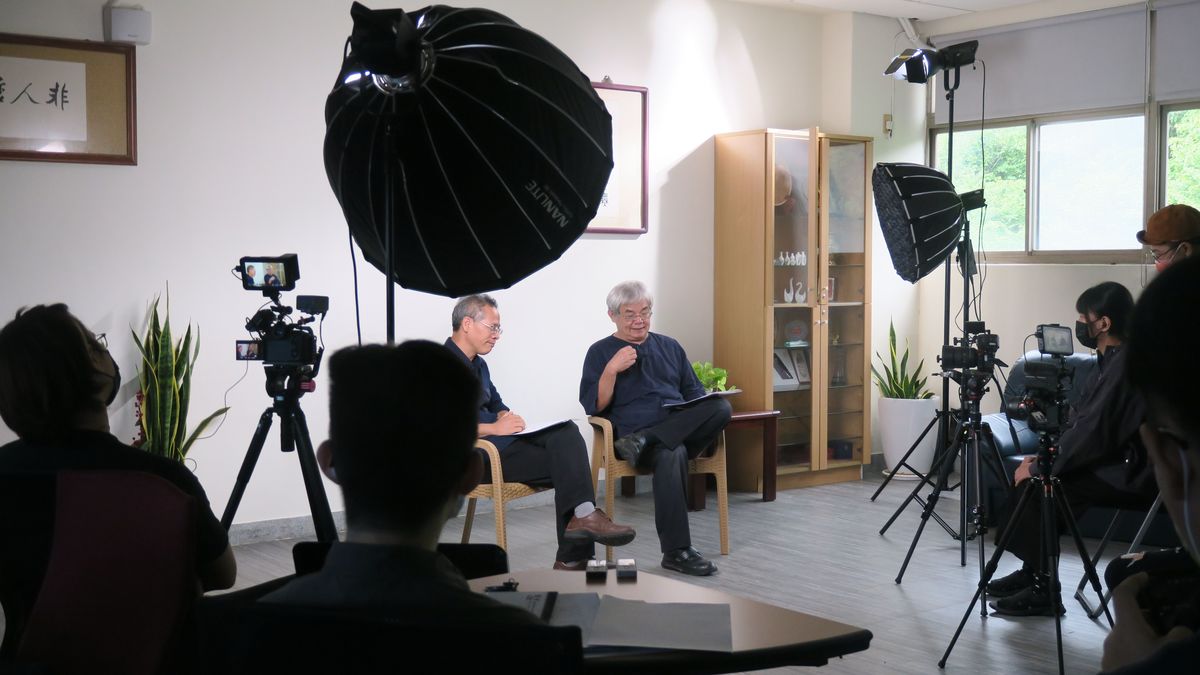
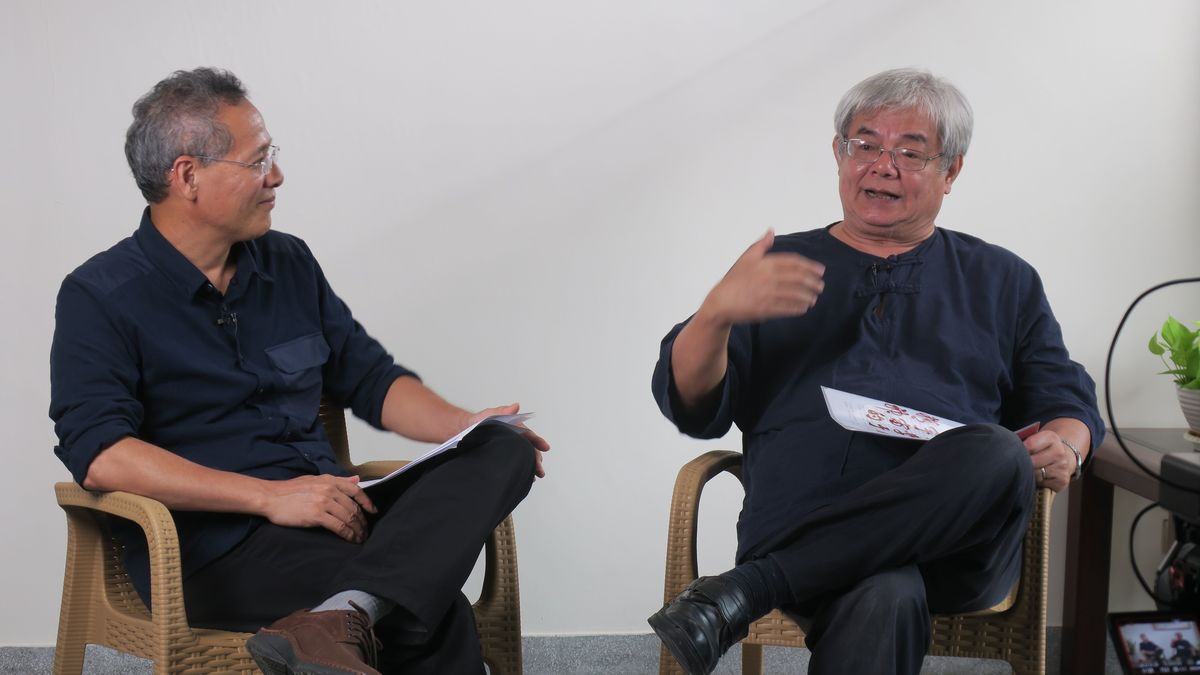
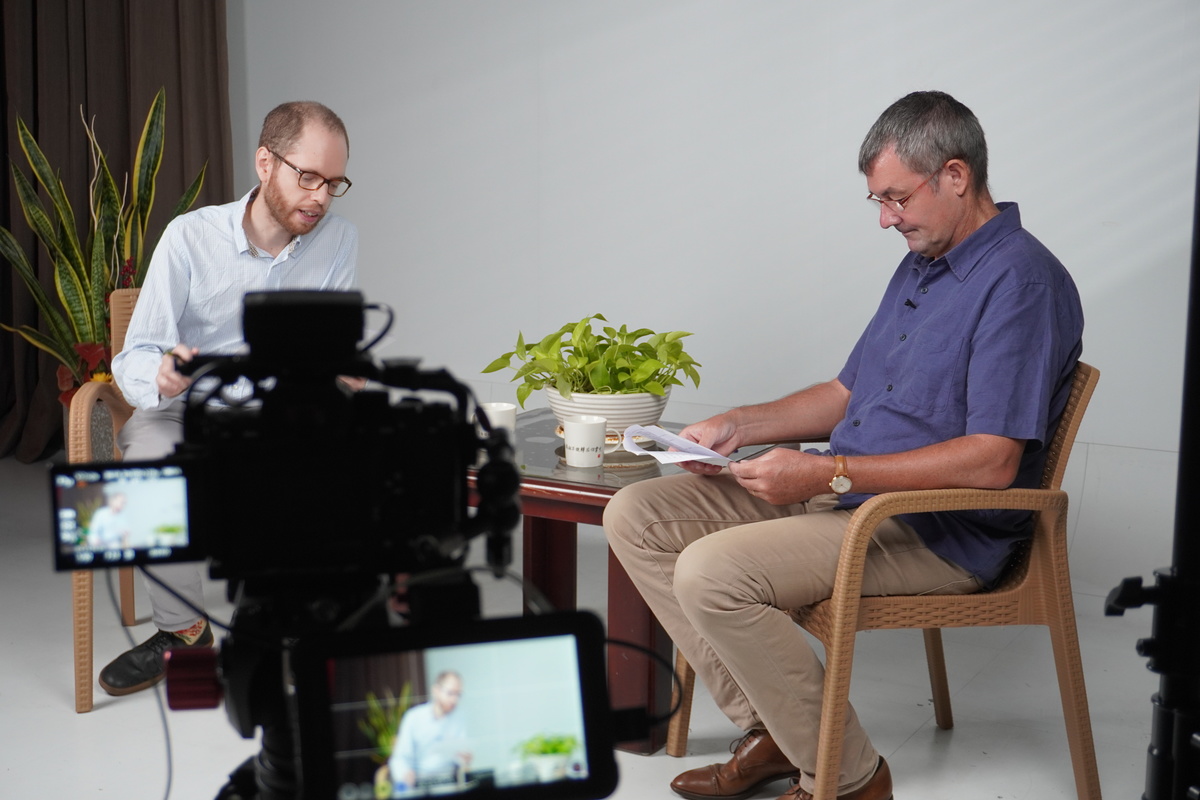
2021-10-25
(Provided by College of Liberal Arts) Dean of the College of Liberal Arts Hsi-San Lai and Assistant Professor Mark Frederick McConaghy of the Department of Chinese Literature are currently directing The Transcultural Sino-Island: The Global Sinology Forum at NSYSU, a benchmark project of the Ministry of Education. One of its sub-projects consists of a series of interviews with international sinologists, recorded in the audio-visual format. The coordinators hope to invite nearly 20 international sinologists to the University over a period of one to two years to share insights on their academic career and works, perspectives on Sinology, experiences conducting Sinological research in Taiwan, as well as cross-cultural life experiences. In the first interview session, Dean Hsi-San Lai interviewed Chair Professor Rur-Bin Yang of National Tsing Hua University, discussing his academic career, understanding of Sinology as a cross-cultural endeavor, and thoughts on Confucianism, which has served as a profound influence on his intellectual work.
Dean Lai pointed out that Professor Yang has not only produced more than ten notable academic monographs in the field of Sinology, but has also translated important works from Japanese and English into Chinese, works which sit at the intersection of philosophy, psychology, and religious thought. In addition, he has also donated thousands of important historical artifacts related to Chinese and Taiwanese history to Tsing Hua University and has been a driving force behind the establishment of the Tsing Hua Museum, making major contributions to cultural preservation and humanistic education in Taiwan. He has a rich and finely developed intellectual standpoint, which is informed by his long study of and concern for the cultural history of the Sino-world. The two professors discussed the question of how these intellectual traits were linked to Professor Yang’s own life experience, particularly as they relate to his ideals and values. Professor Yang answered by saying that he wouldn’t be engaging in his academic work if it was not undergirded by a set of values he holds dear. Believing that “humans are incomplete animals”, he is committed to minimizing the gap between the realm of the ideal and the realm of lived experience – this is a promise he made to himself and the source of his motivation to turn his ideas into a concerted practice. The strongest influence on Professor Yang‘s path to becoming a Confucian scholar was the exposure to New Confucian writings composed by the generation of scholars who came to Taiwan during the 1949 crisis, which he first engaged with during his secondary education, a time when he felt a sense of emptiness regarding the question of existence and underwent a series of trials in his own life. It was precisely at this moment that he encountered the works of new Confucian scholars, leading him on to the path of Confucian scholarship.
Working from a New Confucian perspective, Professor Yang has produced trailblazing interpretations of notions of the body and the theory of chi. One of the ways he has done so is by placing Zhuangzi’s notion of technique and Tao into conversation with New Confucian thought. He thinks that Mr. Mou Tsung-san pushed metaphysical issues to an important new level, developing the implications inherent to the practical learning of Neo-Confucianism, and in doing so producing a compelling philosophical engagement with the notion of “practice.” This was Mou’s core interest. Professor Yang thinks that the study of chi, central to Asian thought, denotes a relationship between the heart-mind/body of the perceiving subject and the outer world that cannot be reduced to a binary form. In Zhuangzi’s work, chi plays this exact role. For Professor Yang, Mou’s work can be understood as an attempt at dissolving or eliminating chi, which runs contrary to his own ideas. He believes that if one attempts to eliminate the richness of meaning inherent to the notion of Chi, one risks losing many elements that are essential to Chinese philosophy, literature, and art, and indeed would make many concepts within those fields incomprehensible.
Dean Lai said that Professor Rur-Bin Yang’s philosophy has been consistently focused on the question of socio-cultural practice, and has consistently concerned itself with literature, society, and politics on both sides of the Taiwan Strait. Regarding Taiwan's internationalization and future development in the field of sinology research, Professor Yang believes that the development of sinology in Taiwan has never been interrupted, and in fact has become an integral element of the common cultural foundation that has generated the positive affective disposition that is a hallmark Taiwan’s life-world. Such cultural traits enabled Taiwan to enter into rich dialogue with the rest of East Asia, and particularly with Sinologists across the strait. Regarding Taiwan's distinct historical fate and international position, professor Yang noted that because Taiwan is imbued with this rich Sino-cultural heritage, as well as possesses a free and democratic social environment, it can attract more foreign scholars to do cross-cultural Sinological work.
The College of Liberal Arts stated that The Transcultural Sino-Island: The Global Sinology Forum at NSYSU is in the midst of establishing a platform for global Sinology studies, turning Sizihwan Bay into an international stage for cross-cultural Sinology studies and reinforcing Taiwan’s exchange with Sinologists in the Mainland, Hong Kong, Japan, North America, and Europe. A critical element of this larger overall project is the Global Sinologists Interview Series, which over the next 1-2 years will invite close to 20 “global Sinologists” to visit NSYSU’s seaside campus to engage in extended one-on-one interviews with members of the university faculty, which will be recorded in both audio-visual and analog form. The project plans to invite top Taiwanese-born Sinologists or humanities scholars with outstanding academic achievements, who have produced works that have become paradigmatic in their field. The project also plans to invite foreign-born Sinologists who lived and worked in Taiwan for many years, and who have made important contributions to Taiwanese academic life. These foreign-born Sinologists have on the one hand already set roots down in Taiwan, making it their academic and personal homes, while remaining active in global Sinological circles. Finally, the project will also invite Sinologists who work overseas yet who collaborate closely with Taiwanese academics and have deep professional and cultural ties to Taiwan.
The results of the future activities will be uploaded to the website of The Transcultural Sino-Island and shared with the National Central Library for future reference of those interested in Sinology around the world. The interviews are to be compiled into a book, tentatively titled "The Transcultural Sino-Island: Cultural Power from Taiwan to the World”. Each chapter will be dedicated to one Sinologist. The book will aim at presenting the varied and rich international cross-cultural exchange of Taiwan’s Sinology to the readers.
(Edited by Public Affairs Division)
